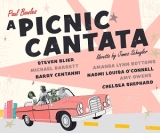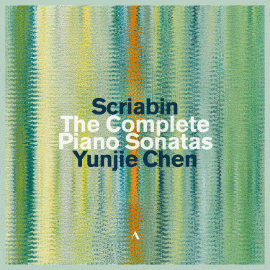A Picnic Cantata aus dem Jahre 1954 ist eine halbstündige, siebensätzige Komposition für vier Frauenstimmen, zwei Klaviere und Schlagzeug von Paul Bowles (1910-1999). Es war ein Gemeinschaftsprojekt des Klavierduos Arthur Gold und Robert Fizdale, des Komponisten Paul Bowles und des Dichters James Schuyler.
Es wurde gesagt, Schuylers Libretto verbinde die Direktheit von Gertrude Stein mit der Fantasie von Maurice Sendak und lasse einfache Dinge paradox und geheimnisvoll werden. Die Musik von Bowles und das Libretto von Schuyler, so wurde 1954 angekündigt, fange die Oberflächlichkeit und Einfachheit von Picknicks ohne tiefere Bedeutung ein.
Die Erzählung folgt dem üblichen Picknick-Szenario: ein Besuch von Freunden, die eine Sonntagsfahrt mit Picknick vorschlagen, die Planung des Picknicks, die Fahrt zum Hat Hill Park, die Lektüre des Horoskops, der Ratgeberkolumne und des Gartenteils der Sonntagszeitung und schließlich das Einpacken und die Heimkehr.
Die Musik ist abwechselnd plappernd und lyrisch, quicklebendig und melancholisch charmant.
Die Produktion des New York Festival of Song ist voller Vitalität,
und die vier von Barrett, Blier und Centanni begleiteten Sängerinnen können die Banalität und das Menschlich-Allzu Menschliche des Stücks mit stilsicherer Ausdruckskraft wunderbar darstellen.
A Picnic Cantata, written in 1954, is a half-hour, seven-movement composition for four female voices, two pianos, and percussion by Paul Bowles (1910-1999). It was a project of the piano duo Arthur Gold and Robert Fizdale, composer Paul Bowles, and poet James Schuyler.
It has been said that Schuyler’s libretto combines the directness of Gertrude Stein with the imagination of Maurice Sendak, allowing simple things to become paradoxical and mysterious. In a program note from 1954 one can read that Bowles’ music and Schuyler’s libretto captured the superficiality and simplicity of picnics without deeper meaning.
The narrative follows the usual picnic scenario: a visit from friends who suggest a Sunday drive with a picnic, the planning of the picnic, the drive to Hat Hill Park, the reading of the horoscope, the advice column, and the garden section of the Sunday paper, and finally the packing and return home.
The music is by turns babbling and lyrical, mercurial and melancholically charming.
The New York Festival of Song production is full of vitality, and the four singers, accompanied by Barrett, Blier and Centanni, are wonderfully able to portray the banality and the human-all-too-human of the piece with stylish expressiveness.





















